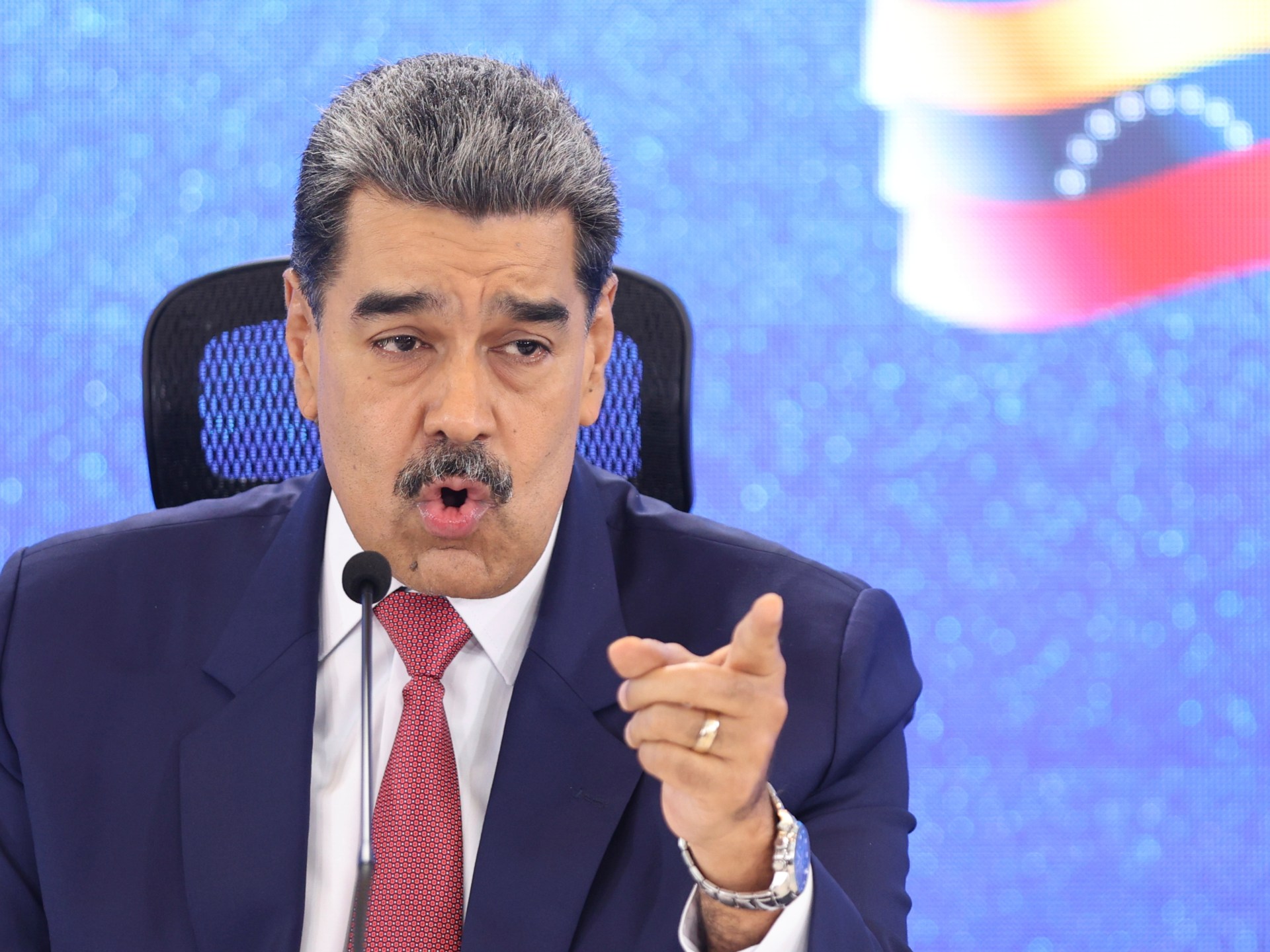Venezuela’s president Nicolas Maduro claimed that a “false flag operation” to plant explosives at the US Embassy in Caracas, which was being conducted in response to US military expansion off the coast of the Latin American nation, was prevented by his security forces.
In a late on Monday televised interview, Maduro claimed that two trustworthy sources, both domestic and international, had informed the government about the potential attack by “extremist groups of the local Venezuelan right” and that security personnel had been dispatched to reinforce the embassy.
Recommended Stories
list of 4 itemsend of list
According to Maduro, the sources “concluded on the possibility that a local terrorist group may have improvised something at the US Embassy in Caracas.”
He continued, “This was supported by a person who will be known soon, and requested by a person who will be known soon, but this is all going on.”
The intention was to blame Venezuela’s government for the attack, which would “start a new conflict” with the US, he continued.
The US Embassy is closed, and only staff members are in charge of the building’s security and upkeep now that Caracas and Washington have strained diplomatic relations.
The alleged plan to attack the embassy comes as US President Donald Trump is rumored to have stopped negotiations with Venezuela’s government and instructed his special envoy Richard Grenell to halt all communication with Caracas.
Trump spoke with senior military leaders at a meeting in the Oval Office on Thursday, according to an unnamed senior US official, who told Reuters news agency on Monday.
Trump’s military strategy, according to the official, has not yet been decided whether to launch a second phase of his military strategy, which will reportedly involve attacks on Venezuelan sites. The official also told Reuters.
Venezuelan and US tensions grow
In a failed attempt to remove Maduro, Trump broke ties with Caracas and recognized an opposition leader as Venezuela’s leader during his first term in office.
While US Navy ships and a submarine were deployed off the country’s coast in August, Trump claimed Maduro was one of the world’s biggest drug traffickers and announced that a reward for his capture would be doubled to $ 50 million. The military is expanding, and F-35 fighter jets from the US have also been added.
US Defense Secretary Pete Hegseth announced on Friday that four people had died as a result of the most recent attack on a small Caribbean vessel that the White House claimed had been a target of “narco-terrorists” and was carrying “narco-terrorists”
The US Department of Justice’s Office of Legal Counsel produced a secret and extensive list of cartels and suspected drug traffickers, according to a US media outlet CNN. In addition, the president is permitted to use deadly force against a wide range of suspects because of an imminent threat to US citizens from drug gangs.
The Trump administration’s aggressive campaign against Latin American drug cartels, which also includes increased authority for the CIA to carry out covert operations and lethal targeting, is said to be a significant component of the Justice Department’s opinion.
Prior to this, those responsible for interdicting drug-trafficking vessels and making arrests smugglers were viewed as criminal suspects with due process rights by the US Coast Guard.
Officials in Venezuela have criticized the Trump administration’s shipping targeting, claiming that it is part of an extrajudicial killing plot.
Source: Aljazeera

Leave a Reply